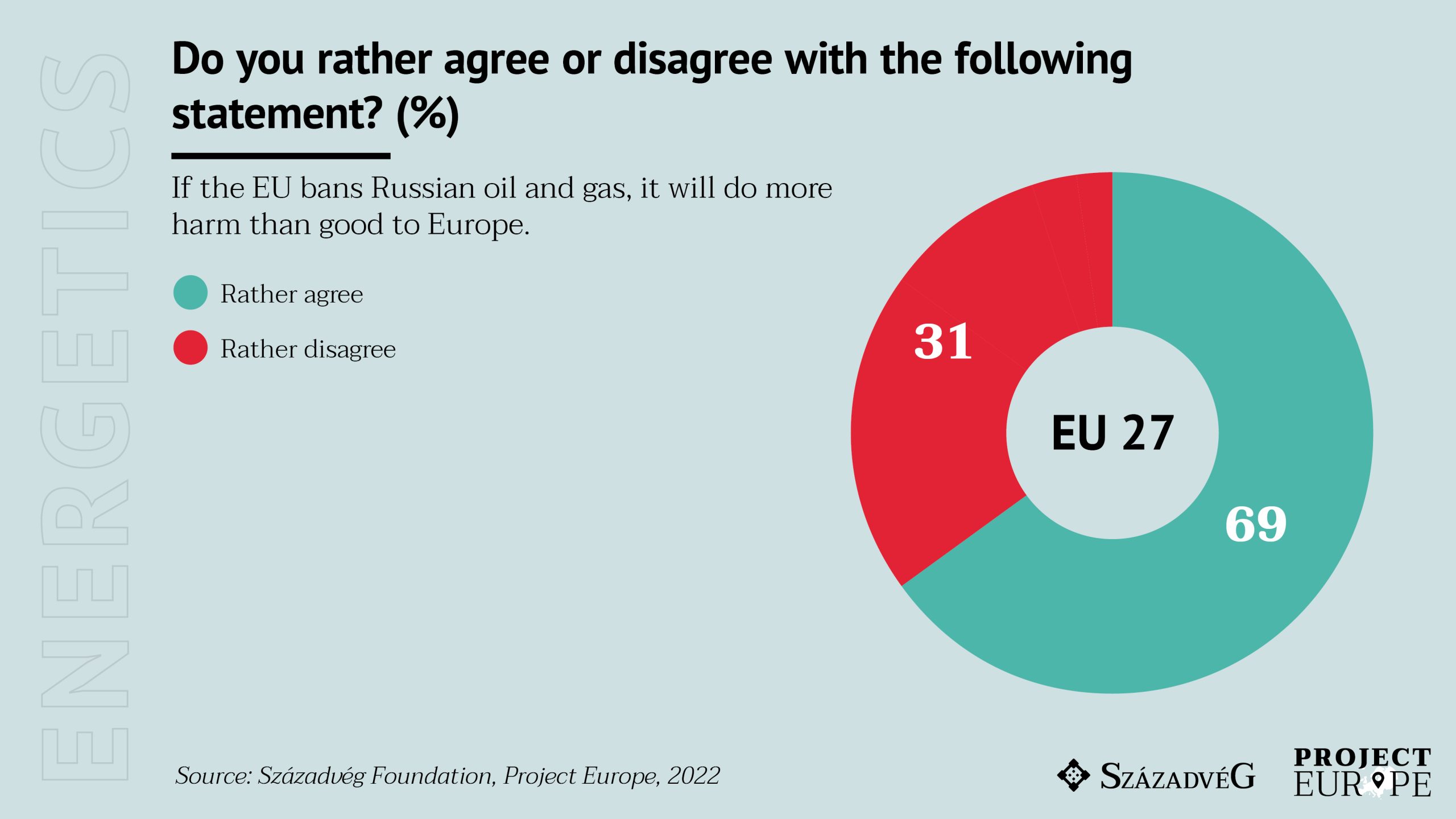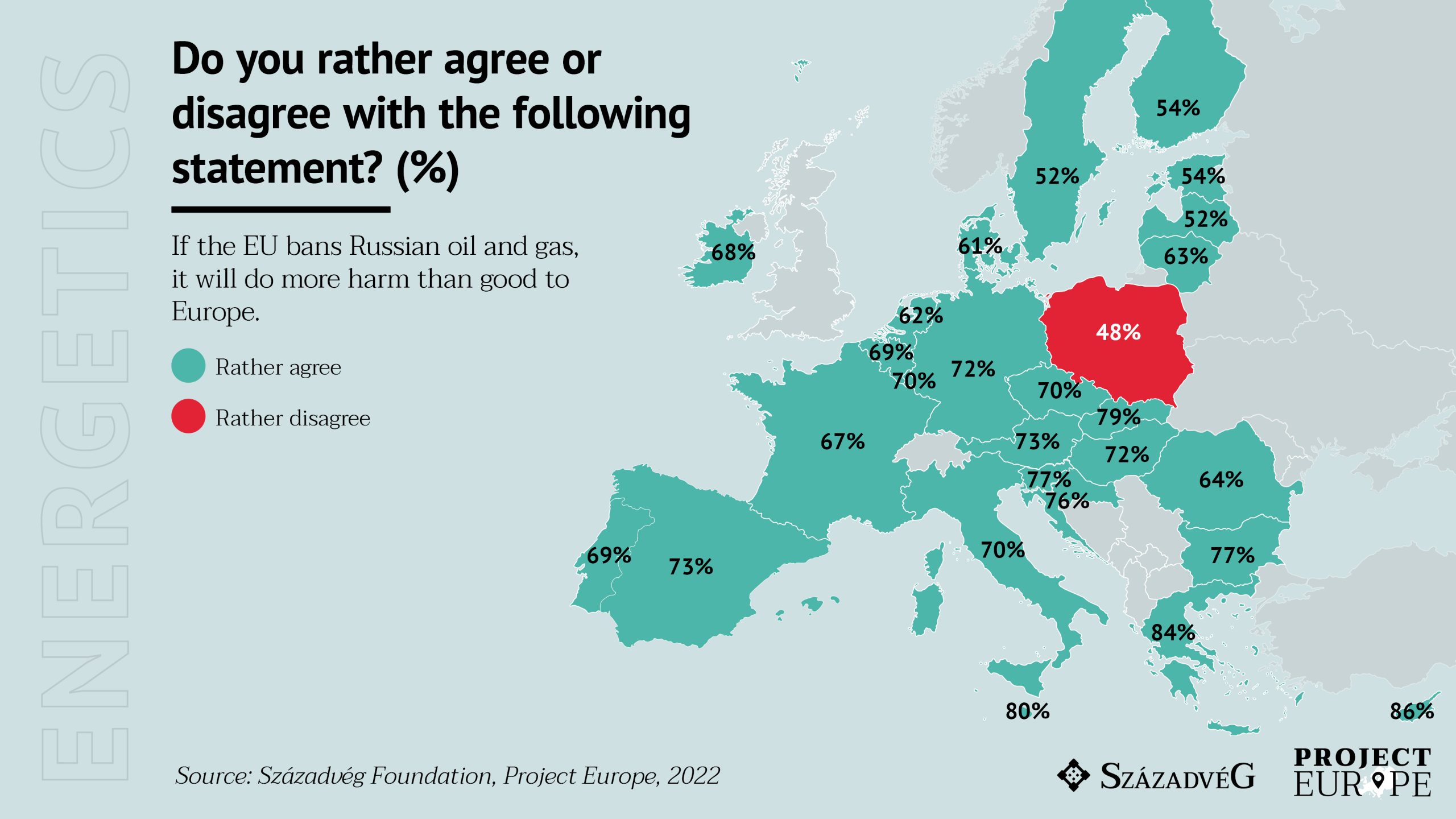Although after the outbreak of the Russian-Ukrainian war in February, the European political elite uniformly opposed the sanctions affecting Russian energy supply, by the end of the spring period, many officials changed their previous opinion. One of the driving forces of the turnaround was the European Commission, which, despite criticism from several EU countries, including Hungary, had the Member States adopt an embargo on solid fuels and oil shipments by sea at the beginning of the summer, and has been working on limiting gas shipments since then1.
Europeans say the ban on Russian oil and gas is harmful
Brussels’ main argument in favour of an energy embargo is that the measures will force Russia to end the war as soon as possible at a bearable cost for Europe, i.e., the benefits of the end of the conflict outweigh the damage of sanctions2. As the intensity of the war has been increasing for nearly ten months, the benefits of the sanctions have become questionable. At the same time, the trade conflict has plunged the EU economy into crisis, and this already has enormous social costs.
The effects of these processes are also strongly reflected in European public opinion. Based on research conducted by Századvég, more than two-thirds of the adult population in the Member States of the European Union who replied to the question agree that the damage caused by the ban on Russian oil and gas outweighs the benefits of the measure in Europe.
Only the Poles consider the energy embargo useful
The oil and gas ban is considered more harmful by the majority of the adult population in all Member States, with the exception of Poland, and in more than half of the countries the proportion is at least 70 percent. The rejection rate in Hungary – tied with Germany – is the tenth highest, at 72 percent. It is telling that even the majority of citizens living in the Baltic States, who are extremely pro-sanction, do not agree with the European Commission’s argument.
Poland is the only Member State whose results – due to the country’s historical background, geographical location and low exposure to Russian energy supplies – support Brussels’ argument. However, even in the case of the Polish population, only a narrow majority of 52 percent said that the benefits of banning Russian oil and gas would outweigh the costs.
In the first half of 2016, the Századvég Foundation conducted a public opinion poll survey covering all 28 European Union Member States, with the aim to analyse the opinions of EU citizens regarding the issues that most affect the future of the EU. In a unique way, Project 28 conducted the widest possible survey of 1,000, that is a total of 28,000 randomly selected adults in each country. Gaining an understanding of society’s sense of prosperity and mapping the population’s attitudes towards the performance of the European Union, the migration crisis and the increasing terrorism were among the most important goals of the analysis. Following the surveys in 2017, 2018 and 2019, on behalf of the government, the Századvég Foundation has been conducting the research under the name of Project Europe since 2020, which continued to reflect on the topics that most dominated the European political and social discourse.
In 2022, the aim of the survey is again to map the population’s attitude towards the most important public issues affecting our continent. In addition to society’s sense of prosperity, the performance of the European Union, the coronavirus pandemic, climate change, and the perception of the migration crisis, in line with the latest challenges affecting Europe, the dominant theme of this year’s poll has been the Russian-Ukrainian war, the energy crisis, energy supply, and family policy. In addition to the European Union Member States, the 2022 research covered the United Kingdom, Norway, Switzerland, Moldova, Albania, Kosovo, North Macedonia, Montenegro, Serbia, Turkey, and Bosnia and Herzegovina, and surveyed a total of 38,000 randomly selected adults using the CATI method between 13 October and 7 December.
[1] When adopting the oil embargo, the Commission indicated that it would put forward its gas embargo proposal within weeks, but the majority of the leaders of the Member States reacted with negative statements. Since the end of the summer, Brussels has therefore been working on the introduction of a gas price cap on the stock exchange, the consequences of which would be the same as those of an embargo, as Russia has indicated that it will not deliver to countries that support the measure.
[2] Representatives of the Commission have repeatedly claimed that their efforts are supported by European public opinion, even though the results of opinion polls in the Member States carried out in the spring showed that this is not the case. In this regard, Századvég previously wrote an open letter to Energy Commissioner Kadri Simson.


